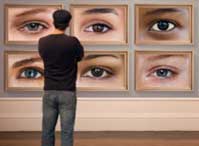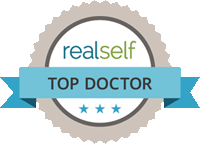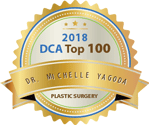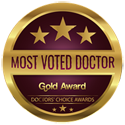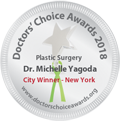 Imagine for the moment that you have no sense of smell. At first, you might consider it a minor annoyance. You wouldn’t be able to smell a flower garden or the bouquet of your favorite pinot noir. But losing your sense of smell isn’t just a quality of life problem. Having an impaired sense of smell can be dangerous. How would you smell a gas leak or a house fire? How would you know if the milk you were about to pour on your cereal was sour?
Imagine for the moment that you have no sense of smell. At first, you might consider it a minor annoyance. You wouldn’t be able to smell a flower garden or the bouquet of your favorite pinot noir. But losing your sense of smell isn’t just a quality of life problem. Having an impaired sense of smell can be dangerous. How would you smell a gas leak or a house fire? How would you know if the milk you were about to pour on your cereal was sour?
Smell loss has even more profound implications. Your sense of smell is closely linked to your sense of taste. If you can’t smell your food, you can’t enjoy it or even identify it with any certainty. In fact, smell and taste disorders always go hand-in-hand. For those who have a smell/taste disorder, including nearly two million Americans, the world becomes a less joyful and far more dangerous place.
Many of us have experienced temporary smell loss due to nasal obstruction from a cold, flu, or allergies. Permanent loss of smell, however, usually comes from some kind of physical obstruction, trauma, or tumor. These causes can include a nasal polyp or scar tissue, a trauma that damages nerves involved in smelling, or rarely a brain tumor. Smoking can also permanently damage your sense of smell, and normal aging can also be a factor. Just as your ability to see and hear well decreases with age, so can your sense of smell.
Loss of the sense of smell, known as anosmia, can be a presenting sign of COVID-19 infection. Read more about worldwide ongoing research.
If you’re experiencing an altered or diminished sense of smell or a complete loss of sense of smell, your first step should be to call an otolaryngologist like Dr. Yagoda, who specializes in the care of the ear, nose, and throat. With her skills as both a facial plastic surgeon and an otolaryngologist, Dr. Yagoda will provide you with the proper diagnosis and the most outstanding care.
Covid-19-related Loss of Smell
Sudden loss of smell was recognized as one of the earliest and most reliable predictors of COVID-19. In fact, over 75% of those afflicted with COVID-19 experienced complete or partial smell loss. For those who have a smell/taste disorder from COVID-19, and the nearly two million Americans who suffered from it prior to COVID-19, many may recover spontaneously within weeks or months, but some do not. For 10% to 20% of people, their smell loss is persistent, and it can be months before they even begin to recover. So, for those who do not show early signs of spontaneous recovery, the question is, what can be done?
Luckily, the olfactory system has the capacity to regenerate. Dr. Yagoda recommends “smell training” for all patients with anosmia. This significantly amplifies (and often doubles) the rate of recovery. Guided olfactory training is a deliberate, active, contemplative smelling process used to support the regeneration of olfactory neurons, forge new neural pathways and reinforce existing ones.
Dr. Yagoda also recommends a novel olfactory therapy conceived of by her patient, Leah Holzel, who was a trained culinary professional, food journalist and researcher. She personally suffered anosmia in 2016 after an upper respiratory infection, and began a smell training program recommended by Dr. Yagoda immediately thereafter. She later became an expert in one-on-one counseling to help others navigate the loss of sense of smell. This intervention advocates a culinary approach to anosmia that supports a positive reconnection with food in the absence of flavor, and/or during the challenges caused by parosmia. This approach was extensively researched and peer-reviewed by two flavor scientists, Alexander Fjaelstad. M.D and Robert Pellegrino, PhD, and by Professor Thomas Hummel, one of the world’s leaders in both basic and clinical olfactory research. (A publication and cookbook on smell loss and the flavor system is in contract with Columbia University Press.) If you are suffering from loss of smell Dr. Yagoda can connect you with Ms. Holzel for one-on-one counseling.
Additional resources:
- Abscent – For ending smell disorders
- Fifth Sense – Long Covid Hub
- The Smell and Taste Association of North America (STANA)
- The Monell Chemical Senses Research Center in Philadelphia does not have a clinical arm but can be a resource for the latest current research on anosmia. Contact jtrachtman@monell.org






























